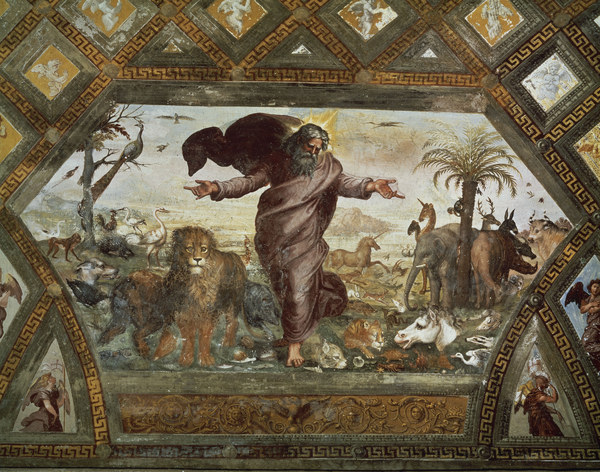Spiritual Sunday
As today’s lectionary reading is the opening verses from the Bible, I’m reposting a past essay that discusses the kind of truth that one finds there. Poetry is needed to capture the wondrousness of creation, and the Book of Genesis delivers. Here’s an excerpt:
And God said, “Let the waters bring forth swarms of living creatures, and let birds fly above the earth across the dome of the sky.” So God created the great sea monsters and every living creature that moves, of every kind, with which the waters swarm, and every winged bird of every kind. And God saw that it was good. God blessed them, saying, “Be fruitful and multiply and fill the waters in the seas, and let birds multiply on the earth.” And there was evening and there was morning, the fifth day.
And God said, “Let the earth bring forth living creatures of every kind: cattle and creeping things and wild animals of the earth of every kind.” And it was so. God made the wild animals of the earth of every kind, and the cattle of every kind, and everything that creeps upon the ground of every kind. And God saw that it was good.
Attempts to wrest from the Bible a scientific account of the Earth’s origins diminish the story and violate our reasoning faculties. The magnificence of the Genesis account resists petty attempts to shoehorn it into a narrow agenda.
It’s important to make this point repeatedly as once again we have a Congressman, this time from Wisconsin, blithely contending that the Earth is only 6000 years old. (It’s a scientific fact that the Earth is approximately 4.5 billion years old.)
Religious fundamentalists are not the only narrow thinkers, however, and have their counterpart in scientific fundamentalists. Interestingly, both insist on taking the Bible literally, one to praise, the other to attack. Both, as I note below, appear deaf to its poetry.
Reposted from June 16, 2013
A recent review of Curtis White’s book The Science Delusion: Asking the Big questions in a Culture of Easy Answers in Slate Magazine makes a point that I have made many times to my students: the truth that is to be found in the Book of Genesis contains a deeper truth than literal truth. To use a Tim O’Brien distinction that I cited recently, it represents story truth, not happening truth.
Reviewer Mark O’Connell notes with horror that a poll in Prospect Magazine found atheist Richard Dawkins to be the world’s “top thinker,” even though Dawkins’ has made a living of creating religious straw men and then knocking them down. True thinkers, I would add, don’t know the answers ahead of time, which Dawkins always does. Even worse, the scientist fails to grasp the deep wisdom to be found in stories.
Here’s O’Connell going after scientism, which he correctly identifies as a faith::
Scientism is essentially the belief, the faith, that all problems and questions are potentially soluble by empirical investigation (and that if they’re not, they’re somehow not real questions, not real problems). But there are large areas of human experience for which science has no convincing or compelling means of accounting. I am, I suppose, more or less an atheist, but when I read the Book of Genesis, I find that there is something profoundly true about the picture of human nature in those verses—a picture of our perversity and self-alienation that neuroscience, for instance, has no way of getting at or talking about. Schopenhauer, Freud, and Heidegger all give us comparable forms of truth—truths that aren’t verifiable or measurable in the same way as those of science, but that are no less valuable. The most important truths are often untranslatable into the language of fact.
I see religion much as I see poetry, a use of symbols (words in the case of poetry, words, music and ritual in the case of religion) to express the inexpressible. In a review of Harold Bloom’s Anthology of American Religious Poetry (2006), novelist Marilynne Robinson says something comparable:
There is every reason to turn to poetry in order to acquire a sense of the nature of religion. The two seem always to have been intimately linked. This deep and ancient affinity cannot be accidental. One does not “understand” what Aeschylus or Isaiah wrote, because poetry is not, in the ordinary sense, “understood.” If it is great, it is lived with over time by individuals and civilizations, interpreted again and again in its impact on language and thought and the arts, and on all those souls who are sensitive to its pleasures and sufficiencies. In just the same way, religion is not to be “understood.”
I wonder if Dawkins, with his desire to reduce everything to science, would have any idea what Robinson is talking about.
